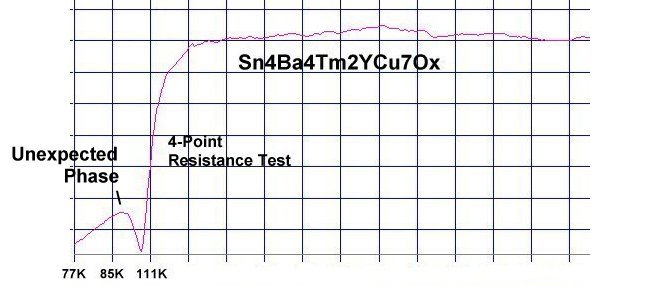

Superconductors.ORG herein reports the discovery of what may be the first high-temperature superconductor to unambiguously exhibit reentrant behavior: Sn4Ba4Tm2YCu7Ox. Historically, reentrant behavior has only been observed in low temperature superconductors when magnetic ordering state conflicts inhibit the formation of cooper pairs in a narrow range below Tc.
In order to observe reentrant behavior in LTS materials, an element with unusual magnetic properties (like holmium in below right plot) must be included. The thulium used in this new superconductor is a well known ferrite when combined with oxygen. Tm2+ is typically magnetic, with an unpaired and strongly magnetic f electron. Tm3+ is f12 and is also magnetic. It is not known, however, why this Tm compound is reentrant, while others are not.
Four resistance tests of this new material produced an average Tc of 104 Kelvin.
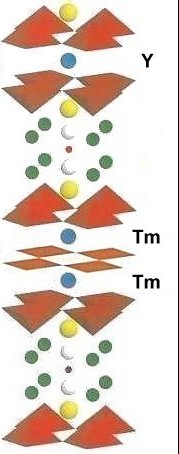 |
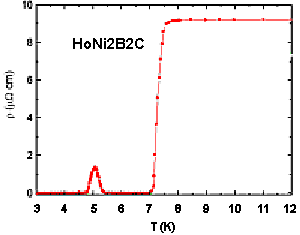 The structure of this material (shown at left) is a 3212/3223 intergrowth. Although the Tm and Y atoms are interchangable between atomic sites, it is believed that the TmTm-Y structure is responsible for Tc >100K. This arrangement produces the highest planar weight ratio (4.5) and extrapolates to a theoretical Tc of 108K. The 1212/1223 analog of this mix failed to superconduct above 77K. |
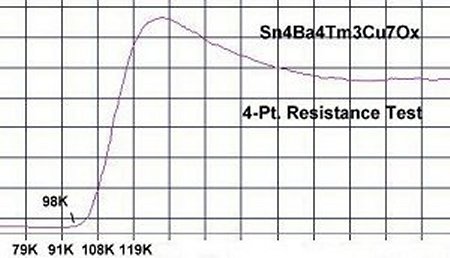
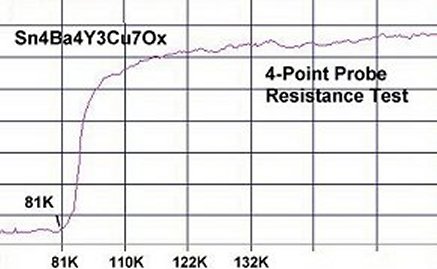
Synthesis of the material was by the solid state reaction method. Stoichiometric amounts of the below precursors were mixed, pelletized and sintered for 11 hours at 890C. The pellet was then annealed for 10 hours at 500C in flowing O2.
SnO 99.9% (Alfa Aesar) BACK to "News" page at Superconductors.ORG
BACK to "News" page at Superconductors.ORG